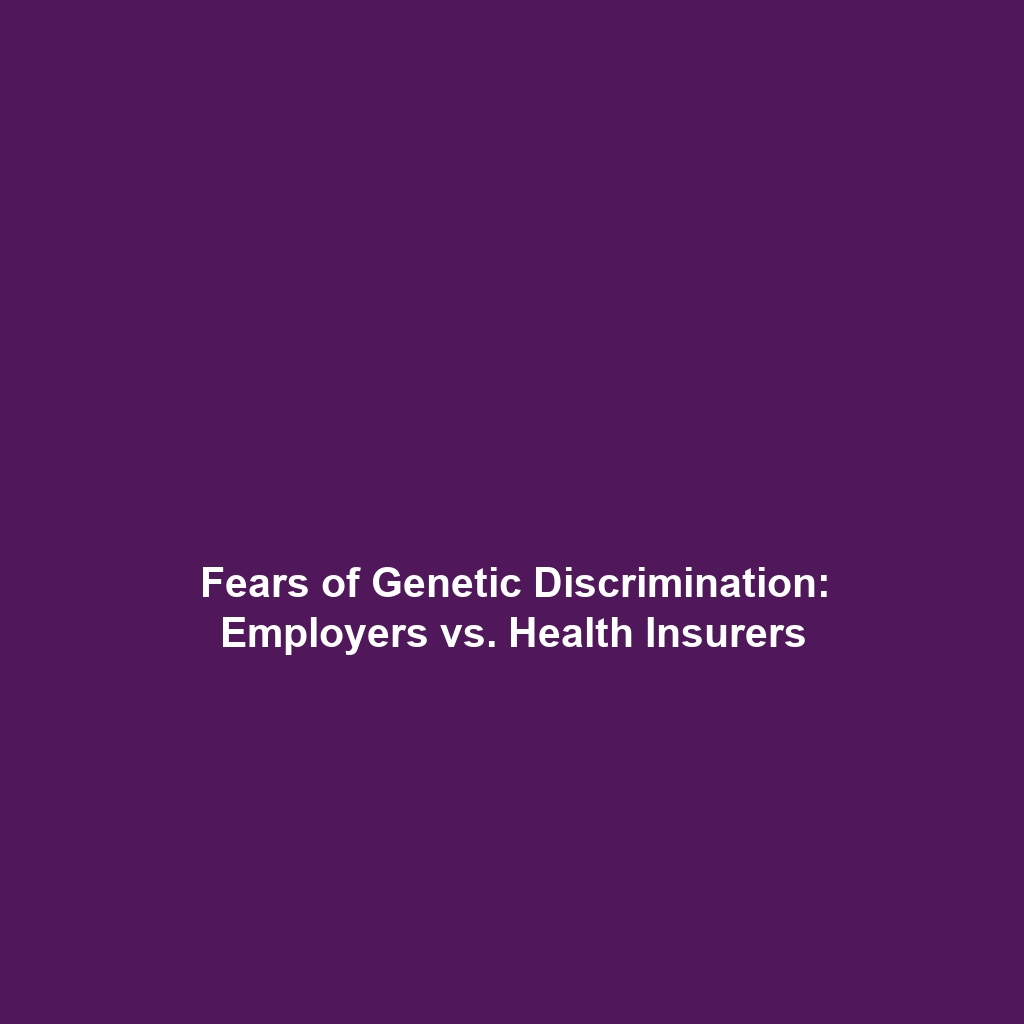Fears of Genetic Discrimination in Light of the Human Genome Project
Introduction
The Human Genome Project (HGP) has provided revolutionary insights into the human genetic makeup, underscoring how genes can predispose individuals to various diseases. However, along with these advancements come stark fears that employers or insurers might exploit genetic information to discriminate against individuals based on their genetic predisposition to disease. Such discrimination poses ethical dilemmas and challenges, raising significant concerns about privacy and equality in the workplace and healthcare systems. This article delves into these fears, situating them within the profound implications of the Human Genome Project.
Key Concepts
Understanding the concept of genetic discrimination requires a clear grasp of key principles associated with the HGP:
- Genetic Privacy: The right to keep one’s genetic information confidential from employers and insurers.
- Genetic Predisposition: The increased likelihood of developing certain diseases based on genetic makeup.
- Ethical Guidelines: Regulations designed to prevent discrimination based on genetic information.
This overview of fears surrounding discrimination fits within the broader context of the Human Genome Project, which aimed at mapping the entire human genome to improve healthcare while also presenting ethical challenges that society must address.
Applications and Real-World Uses
The implications of genetic predisposition fears extend into various domains, particularly:
- Health Insurance: Insurers may deny coverage or raise premiums based on genetic predisposition to diseases.
- Employment Decisions: Employers might choose not to hire candidates based on their genetic risk factors.
These examples illustrate how fears related to genetic discrimination manifest in practical terms, highlighting the importance of protective measures like the Genetic Information Nondiscrimination Act (GINA) to mitigate these risks.
Current Challenges
Despite advancements in genomics, several challenges remain regarding fears of genetic discrimination:
- Legal gaps in genetic discrimination protections across regions.
- Public misconceptions about genetic information and its implications.
- Insufficient enforcement of existing regulations to combat discrimination.
Addressing these issues is vital to ensuring that the benefits of the Human Genome Project do not come at the cost of individual rights.
Future Research and Innovations
Looking ahead, several innovations and ongoing research efforts aim to tackle these fears and enhance genetic privacy:
- Next-Generation Sequencing: Improving data security for storing genetic information.
- AI and Machine Learning: Developing predictive models that do not rely solely on genetic data for risk assessments.
Such advancements hold the promise of fueling ethical frameworks that protect individuals while harnessing the potential of genetic discoveries born out of the HGP.
Conclusion
In summary, the fears of genetic discrimination by employers or insurers underscore a critical conversation in the aftermath of the Human Genome Project. To address these fears effectively, stakeholders must engage in proactive discussions about ethics, genetics, and individual rights. It is imperative to advocate for stronger protections against such discrimination to ensure that scientific advancement does not infringe upon personal liberties. For further reading on genetic privacy and related topics, visit our comprehensive guides on genetic privacy and ethics in genomics.
